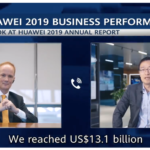In the latest episode of the Tech Strategy podcast, Jeffrey Towson delves into Microsoft’s use of bundles to launch Teams. And dethrone Slack. With Azure’s cloud services gaining market share and AI tools like Sales Copilot and GitHub Copilot driving productivity, Microsoft remains a tech powerhouse. As a digital strategy consultant, Towson highlights how Microsoft’s strategic moves are redefining the industry landscape.








